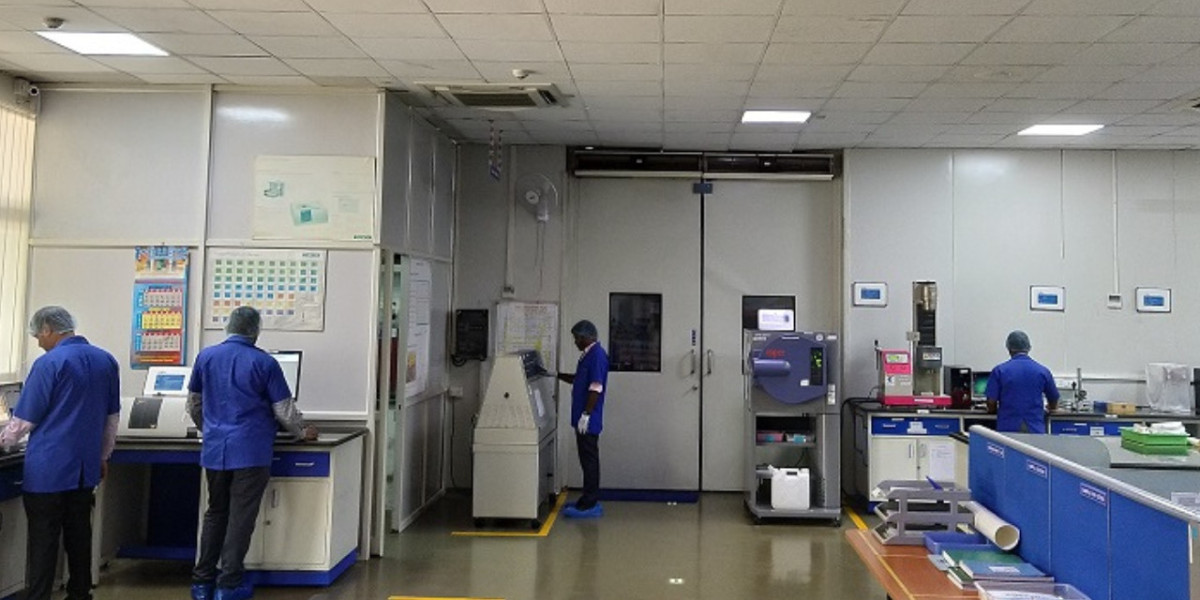Understanding the Importance of a NABL Accredited Laboratory
A NABL accredited laboratory play a role in ensuring accurate and reliable testing services across various industries. From healthcare to manufacturing, these laboratories uphold the highest standards of quality and competence, which makes them indispensable for critical testing and certification.
What Is NABL Accreditation?
Introduction to NABL
The National Accreditation Board for Testing and Calibration Laboratories (NABL) is an autonomous body under the Quality Council of India. NABL accreditation is a recognition of a laboratory’s technical competence and adherence to international standards.
Key Benefits of NABL Accreditation
- Assurance of Quality: Ensures precise and reliable test results.
- Global Recognition: Accredited labs meet international benchmarks.
- Improved Efficiency: Encourages streamlined processes and systems.
- Customer Confidence: Builds trust among clients and stakeholders.
Why NABL Accreditation Matters Across Industries
Healthcare Sector
NABL accreditation ensures the accuracy of diagnostic tests, enabling doctors to make informed decisions. It plays a significant role in:
- Pathology testing.
- Radiological diagnostics.
- Specialty tests for genetic or rare diseases.
Manufacturing and Engineering
In industries like manufacturing, NABL accreditation guarantees the reliability of materials and processes through stringent testing protocols.
Environmental Testing
For environmental monitoring, accredited labs offer dependable analyses for air, water, and soil quality, ensuring compliance with regulations.
Steps to Achieve NABL Accreditation
Step 1: Understanding the Standards
Labs seeking accreditation must comply with ISO/IEC 17025, the international standard for testing and calibration.
Step 2: Application Process
- Submission of application with requisite documents.
- Payment of applicable fees.
Step 3: Assessment by NABL
- On-site assessment of lab facilities.
- Examination of technical competence.
Step 4: Certification and Maintenance
- Issuance of accreditation certificate.
- Regular audits to maintain standards.
How to Choose the Right NABL Accredited Laboratory
Evaluate Their Scope of Testing
Review the lab’s accreditation certificate for details about the specific tests and calibrations they’re certified to perform.
Check for Industry Specialization
Ensure the lab has expertise in your field, whether it’s healthcare, engineering, or environmental testing.
Assess Their Infrastructure and Technology
State-of-the-art equipment and skilled personnel are hallmarks of a trustworthy laboratory.
The Future of NABL Accreditation
Digital Transformation
With advancements in technology, NABL-accredited labs are leveraging digital solutions for faster and more accurate testing.
Expansion of Services
The accreditation scope is continuously evolving, encompassing emerging fields like genetic testing and renewable energy certification.
Sustainability Practices
Many laboratories are incorporating eco-friendly practices to reduce their environmental impact.
Conclusion
A NABL accredited laboratory is synonymous with trust, reliability, and technical excellence. Whether you require diagnostic tests or quality certifications, choosing an accredited lab ensures the highest standards of service. Ready to partner with a leading NABL-accredited lab? Discover the best options here.
FAQs About Laboratory Testing and Accreditation
1. What is the role of ISO/IEC 17025 in laboratory accreditation?
ISO/IEC 17025 specifies the general requirements for the competence of testing and calibration laboratories. It serves as the foundational standard for accreditation.
2. How often are NABL-accredited labs audited?
NABL-accredited labs undergo regular surveillance audits, typically every two years, to ensure continued compliance with standards.
3. Can a laboratory lose its accreditation?
Yes, a lab can lose its accreditation if it fails to meet NABL’s standards during audits or does not address non-conformities.
4. Are NABL-accredited labs internationally recognized?
Yes, NABL is a signatory to international agreements like ILAC, which ensures global recognition of accredited labs.
5. What is the validity period of NABL accreditation?
The accreditation is valid for two years, after which labs must apply for renewal.
6. What types of tests are typically performed in accredited labs?
Tests range from medical diagnostics to material testing, calibration of equipment, and environmental analysis.
7. Is accreditation mandatory for all laboratories?
While not mandatory, accreditation provides a competitive edge and is often required by regulatory bodies.
8. What is the difference between certification and accreditation?
Certification focuses on compliance with standards, while accreditation evaluates technical competence and quality management systems.
9. How can I verify if a lab is NABL-accredited?
You can check the NABL website for a directory of accredited laboratories or request the lab’s accreditation certificate.
10. What are the costs involved in laboratory accreditation?
The costs depend on factors like the scope of testing, size of the laboratory, and the accreditation process requirements.















